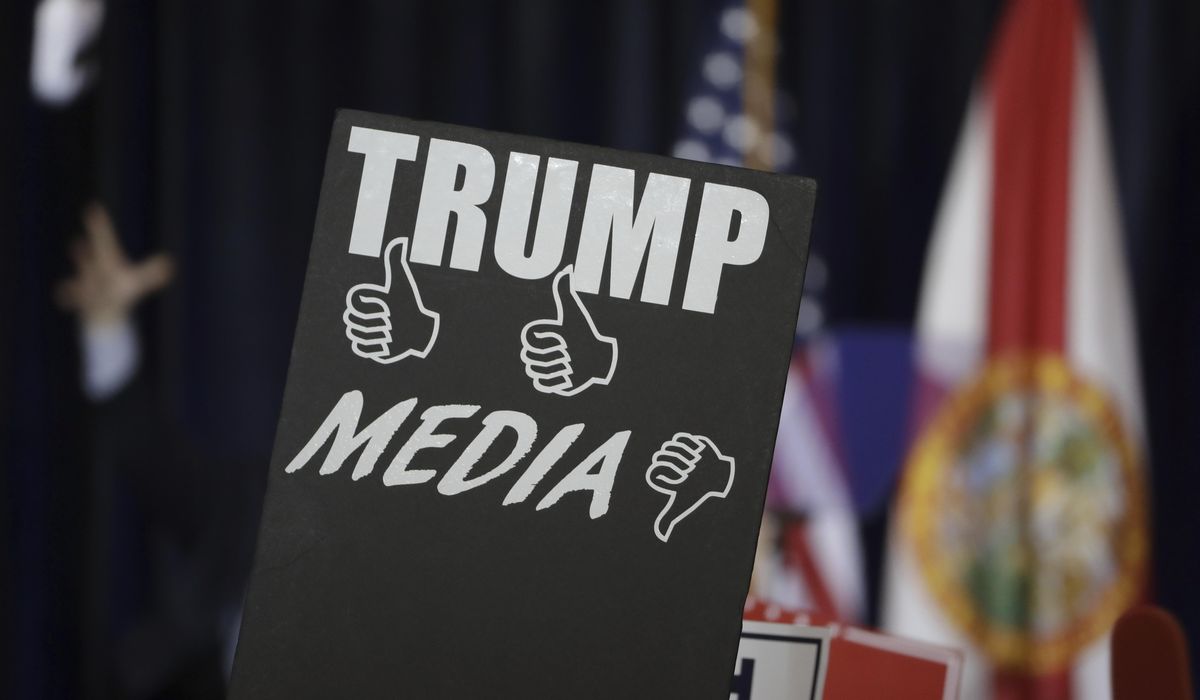


President-elect Donald Trump has sued The Des Moines Register for its disastrously wrong preelection polling, marking his latest move in a crusade to demand accountability for the media’s 2024 election snafus.
The lawsuit argues that the poll — published three days before the election and showing Vice President Kamala Harris with a lead in Iowa when she lost the state by 13 points — defied “credulity” and should have been deep-sixed.
Mr. Trump’s lawyers called the poll “manipulated” and “election-interfering fiction.”
The lawsuit, filed under Iowa’s consumer fraud laws, targets the Register, pollster Ann Selzer and Gannett, which owns the newspaper.
At the time it ran, the poll struck some observers as wildly off base due to the voters sampled. Still, a number of media outlets trumpeted it as a sign that Mr. Trump was showing weakness in Midwestern states or that he was struggling in usually strong GOP areas.
Floyd Abrams, a prominent First Amendment lawyer, called the lawsuit unprecedented.
“The notion that a candidate who won an election would sue a newspaper that published what turned out to be an incorrect poll predicting his defeat is surely unknown in our history,” he told The Washington Times in an email.
He also called it “a real threat to journalistic freedom,” saying it could chill some outlets — and particularly smaller newspapers — into not publishing preelection polls.
Suing the newspaper is part of a broader attempt by Mr. Trump to demand more sober coverage from news outlets that have gone to excess in their treatment of the once-and-future president.
Most notably, outlets breathlessly reported the details of the now-discredited Steele dossier in 2017, tainting the start of Mr. Trump’s first term with unfounded stories of ties to Russia.
Mr. Trump also reached a major settlement last week in a defamation lawsuit against ABC News after one of its personalities, George Stephanopoulos, said the former president was found “liable” for raping a woman, Jean Carroll, in a civil trial. The jury in the civil case actually decided he sexually abused Ms. Carroll but didn’t find that he raped her.
ABC agreed to pay $15 million, with the money going to a presidential foundation.
Mr. Trump has also sued “60 Minutes,” the storied CBS program, saying its preelection interview with Ms. Harris was deceptively edited and amounted to “election and voter interference.”
Mr. Trump’s second election win has forced a reckoning by some news organizations that have delivered overwhelmingly negative coverage of him for nearly a decade.
In late October analysts at the Media Research Center said Mr. Trump faced 85% negative coverage in their sample of the flagship news broadcasts from ABC, CBS and NBC. Ms. Harris, meanwhile, received 78% positive reports from the outlets.
Despite that — or possibly even because of it — Mr. Trump emerged with a fairly easy victory, winning big in the Electoral College count and by 1.5 percentage points in the national popular vote over Ms. Harris.
He teased the lawsuit against the Des Moines newspaper at a press conference Monday, railing against the poll.
“In my opinion, it was fraud and it was election interference,” he said.
The news outlet, though, said he has no case.
“We have acknowledged that the Selzer/Des Moines Register preelection poll did not reflect the ultimate margin of President Trump’s Election Day victory in Iowa by releasing the poll’s full demographics, crosstabs, weighted and unweighted data, as well as a technical explanation from pollster Ann Selzer,” said Lark-Marie Anton, a Gannett spokeswoman. “We stand by our reporting on the matter and believe this lawsuit is without merit.”
The lawsuit against ABC, which was filed in March, was for defamation based on false statements. To win in court, Mr. Trump had to prove not just that the rape claim was wrong, but also that it was made with malice.
The settlement short-circuits that process — and protects ABC from some disclosures during legal discovery.
The lawsuits against CBS and the Iowa newspaper are different.
Mr. Trump sued CBS in federal court in Texas, arguing the Harris “60 Minutes” interview that aired violated the federal Deceptive Trade Practices Act.
CBS, in its initial reply to the lawsuit, said that law has never been used to police editorial decisions by news outlets.
“Under President Trump’s interpretation, the DTPA would become a weapon for any candidate to challenge media coverage they did not like,” the network’s lawyer said in a court filing. “The DTPA has never been so used, and it has no application to the alleged facts here.”
• Stephen Dinan can be reached at sdinan@washingtontimes.com.
